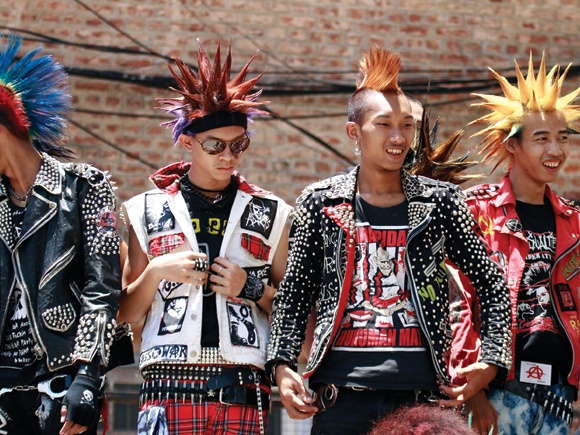The UK’s subculture scene is flourishing, with a reported 56% of adults belonging to a subgroup according to research conducted by planning agency The Nursery.
Conducted during lockdown, The Nursery asked 1800 adults questions designed to uncover the variety and motivations of these different subcultures. Their study revealed there a range of different groups emerging in the UK, some of the most popular including Spirituality groups, Gamers, Restrictive Diet followers, Punks, Goths and so many other communities.
The stats also revealed the motivations for many people when joining these groups, with a staggering 44% claiming their main reason for joining is to feel ‘belonging’. Another 41% of people said they joined their society because it allowed them to ‘the opportunity to be creative’. The other 40% of those interviewed said their collective allowed them to ‘meet new people’.
The top 10 subcultures in the UK
The most popular subcultures in the UK include:
- Gaming
- Religious groups (not mainstream religions)
- Hippy
- Spirituality
- Political movements
- Restrictive diets (e.g. paleo, vegan etc)
- Punk
- Bikers
- Goth
- Role-play gaming
Interestingly, gaming is one of the UK’s largest and most popular subcultures. On top of this the industry is worth a colossal 5.7billion in the UK market, with women accounting for 50% of consumers.
Gaming saw a natural surge during lockdown, 18% of those interviewed revealed they had started gaming since lockdown began. One in eight participants revealed they considered themselves a ‘gamer’.Gaming isn’t reserved to just everyday people either. Many A-list celebrities have also revealed their love for gaming, including the likes of Daniel Craig, Lady Gaga, Snoop dog and many others.
Another emerging subculture revealed by the survey was Modern Day Witchcraft, also known as Wicca. 3% of those surveyed identified as being part of the pagan subculture. Modern day witchcraft has mainly attracted a rising following of young women. This could be due to their values of feminism, spirituality, mindfulness and environmentalism.
This sector reflected the new emergence of newer religions and spirituality (excluding mainstream religions) which are also growing rapidly in the UK subculture scene. Religions such as these accounted for 18% of the subcultures in the UK.
Another spiritual subculture gaining momentum is satanism. Despite popular beliefs, satanism does not believe in hell or heaven. Instead the group is known a recognised church of atheists, who claim to promote a more ‘non-judgemental’ and ‘liberal’ way of life.
Whilst the survey uncovered many new emerging subcultures. Some well known cultures still remain popular in the UK as well. For instance the Straight Edge Punk movement is founded out of the early hardcore Punk movements of the 80s. However the straight edge subculture differentiates from the original punk movement by abstaining from substances such as tobacco and alcohol. This new movement has morphed into different varied subcultures with today’s substance-free younger generation reportedly keeping it alive by ‘claiming edge’.
75% of participants feel their subculture is part of their ‘identity’, alluding to the sheer importance of belonging to a chosen subculture. The research provides great insight into the new ways people are using their interests to not only meet new people but also form like minded communities.
Image Credit: Prospect Magazine

